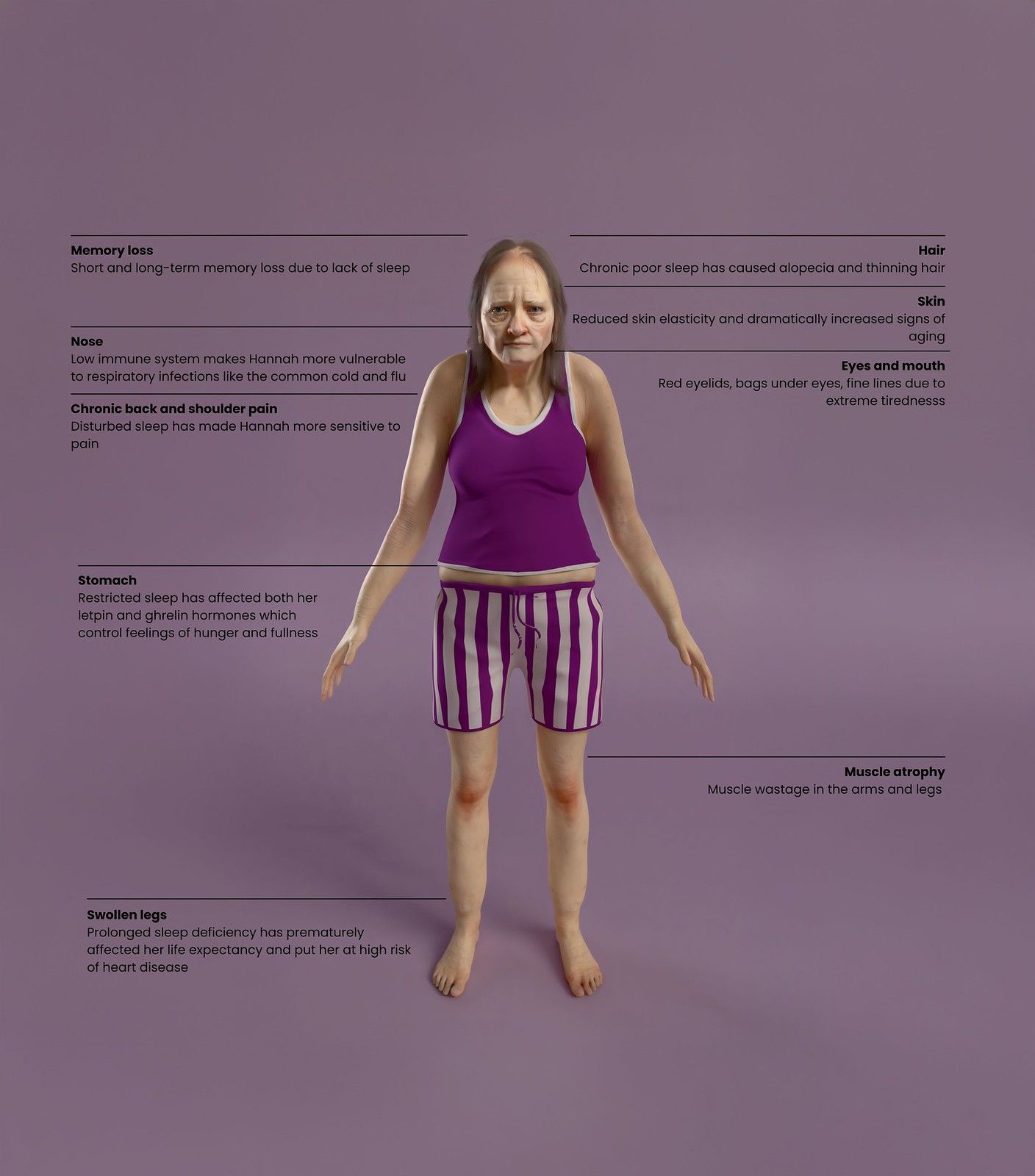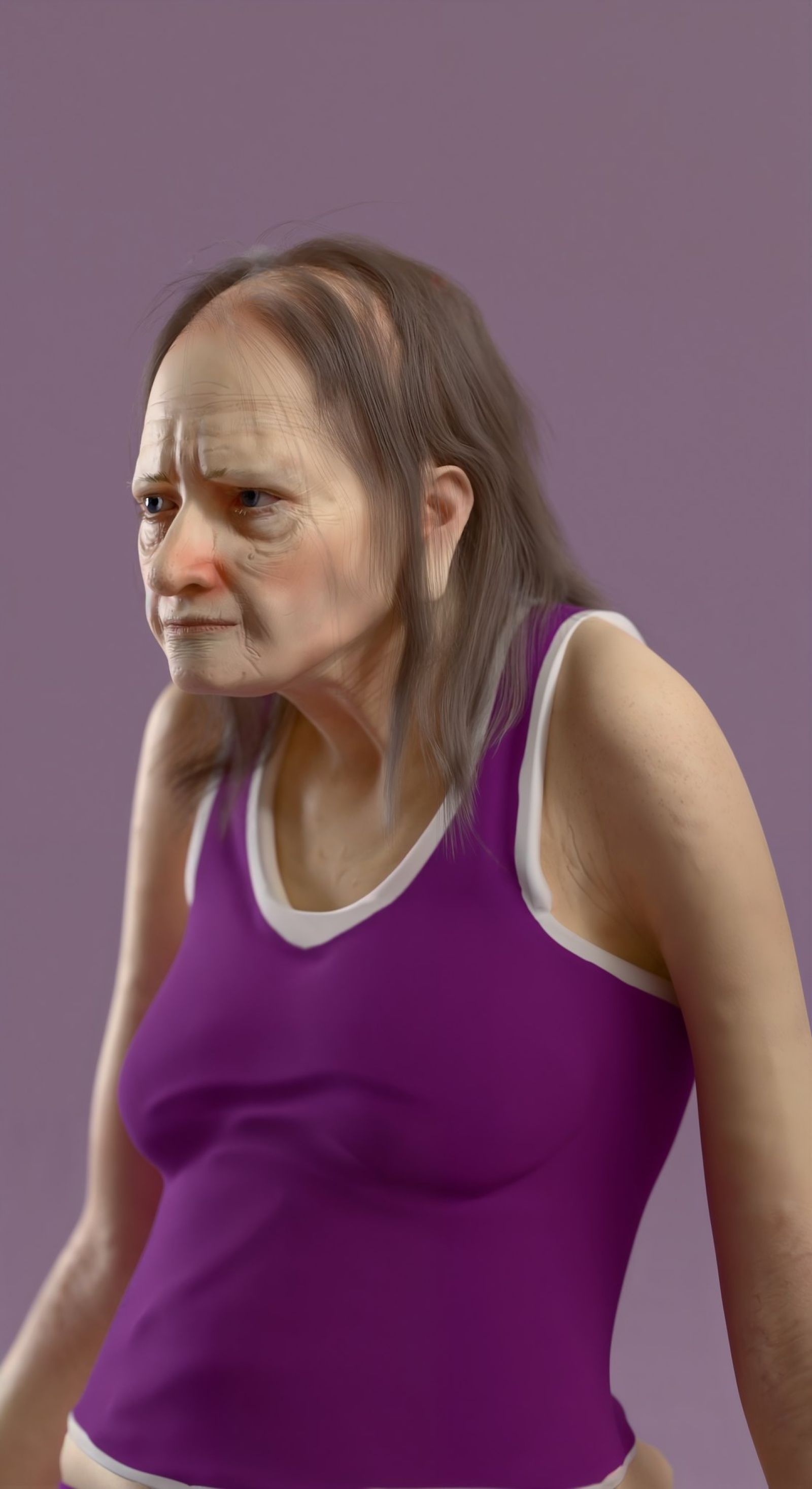Here is what we will look like if we continue to sleep poorly 🛌
Published by Cédric,
Article author: Cédric DEPOND
Source: Bensons for Beds
Other Languages: FR, DE, ES, PT
Article author: Cédric DEPOND
Source: Bensons for Beds
Other Languages: FR, DE, ES, PT
Follow us on Google News (click on ☆)
A model named "Hannah," created by British researchers, illustrates the ravages of chronic sleep deprivation. Based on 19 studies published since 2010, this alarming portrait was developed in collaboration with animators and sleep experts. It is a scientific and visual representation of what a person sleeping only 6 hours a night could look like in a quarter-century.

According to the data, memory impairment is among the first symptoms to appear. During sleep, the brain consolidates memories and processes information. With shortened nights, these functions deteriorate, leading to significant cognitive decline.
Premature aging of the skin is another hallmark of sleep deprivation. Reduced elasticity, pronounced wrinkles, and dull complexion are all signs of prolonged imbalance.
Hair is not spared either. Chronic lack of rest weakens hair follicles, promoting the onset of alopecia. At the same time, dark circles and red eyelids become visible physical markers that are hard to ignore.
The immune system, for its part, shows worrying vulnerabilities. By limiting nighttime regeneration time, the risks of respiratory infections increase, as does susceptibility to inflammatory diseases.
Beyond appearance, the metabolism undergoes major disruptions. Hunger and satiety hormones are disturbed, leading to nighttime cravings and marked abdominal weight gain. These effects are compounded by a lack of energy that reduces the desire for physical activity.

Muscles also weaken. Constant fatigue promotes muscle atrophy, leaving arms and legs visibly thin and fragile. Even worse, cardiovascular health deteriorates, with swelling in the legs (non-muscular) and an increased risk of heart disease.
The goal of this project is clear: to raise awareness of the importance of preserving quality sleep. The researchers emphasize simple solutions, such as regular routines, an adapted sleeping environment, and a balanced lifestyle to avoid such a future.
In short, "Hannah" acts as a distorted mirror of our current habits, reminding us that good sleep is not a luxury but a necessity to preserve our health.
What is the biological clock?
The biological clock is an internal mechanism present in all living beings that regulates physiological cycles over a period of approximately 24 hours. This cycle, also known as the circadian rhythm, controls essential functions such as sleep, digestion, and body temperature.
Located in the brain, specifically in the hypothalamus, this clock is influenced by external cues such as daylight, which synchronize its activities. It allows the body to adapt to day-night cycles.
When the biological clock is disrupted, for instance due to jet lag or a lack of sleep, it can lead to various issues: fatigue, reduced concentration, or weakened immune system.
To maintain its proper functioning, it is crucial to adhere to regular habits, such as keeping consistent sleep schedules, having a quiet room at a moderate temperature by avoiding screens before bed, exposing oneself to natural light daily, and avoiding heavy meals before sleeping.